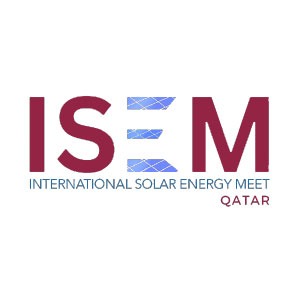- ASRY Awarded 2024 RoSPA Gold Medal in Health and Safety
- BP ponders shifting focus away from renewables, say sources
- QatarEnergy enters 10-year naphtha supply agreement with Japan’s ENEOS Corporation
- The International Energy Agency expects oil demand growth to slow in 2024
- The International Monetary Fund re-selects Kristalina Georgieva as its director
- Libya to target producing 1.4 million b/d by end 2024
- TotalEnergies launches the Marsa LNG project and deploys it multi-energy strategy in Oman
- H.E. Minister Al-Kaabi: Demand for oil and gas will continue for long; we have to be responsible, and Qatar is doing its part
- Egypt to stop exporting LNG starting from the beginning of May 2024
- QatarEnergy selects Nakilat to own and operate 25 conventional LNG vessels

Dana Gas records 20% net profit growth in 2012

Arabian Oil & Gas Staff , February 4th, 2013
Dana Gas PJSC, has released preliminary financial results for the year ended 31st December 2012, the company recorded net profit growth of 20% in 2012, increasing to $ 165 million from $138 million in 2011.
The Company’s cash balance improved by 47% to $165 million by the end of 2012 compared to $112 million at the end of 2011. Total assets at the end of 2012 increased to $3.5 billion.
Gross revenues was slightly lower at $636 million compared to $690 million in 2011 reflecting the conservative cash policy implemented in Egypt, given the delays in collection of receivables, and also temporary suspension of Liquefied Petroleum Gas (‘LPG’) production in Kurdistan Region of Iraq following the damage to the LPG loading bay by a third party LPG tanker accident in June 2012. The company expects revenues to increase once new discoveries in Egypt are brought to production and the Kurdistan LPG loading bay is repaired by Q2 2013.
“Despite regional challenges over the past year, Dana Gas has achieved strong profit growth of 20% in 2012, as well as strengthening the cash position, and growing our operations, with production growth in the Kurdistan Region and new discoveries in Egypt,” said Dr. Adel Al-Sabeeh, Chairman of the Board of Dana Gas. “This combined with the proposed sukuk refinancing result and the international and regional high growth levels forecast for the natural gas industry, gives us considerable optimism for the company’s future, with our attention now firmly focused on how best to realize the value for the shareholders.”
In 2012, the Company’s net production averaged about 60,000 barrels of oil equivalent per day from its interests in the Kurdistan Region of Iraq and in Egypt, where operations remain unaffected by the recent unrest in some other parts of the country.
Dana Gas stated that a decrease in Egypt production to an average rate of just over 32,200 barrels of oil equivalent per day was due to the conservative cash policy that it implemented resulting in lower capital expenditure, given the delays in receivables that the Company experienced after the recent political changes.
Production levels in Egypt are expected to increase as the Company develops its three recently announced gas discoveries, and the Company is actively engaged in constructive discussions with the Egyptian authorities at high level to address the outstanding receivables in as short a time as possible.
In the Kurdistan Region of Iraq, the company continued to increase overall production, achieving a net average rate to the company of 27,500 barrels of oil equivalent per day. LPG production in Kurdistan is scheduled to resume in the second quarter of 2013 following completion of repairs to the LPG loading facilities, and the company is in discussions with the Kurdistan Regional Government to further expand production.
The company has also reached an agreement with the emirates of Sharjah and Ajman in the UAE regarding development of the Zora gas field, located 33km from the UAE coast line. The field will be developed using a single offshore platform linked to onshore processing facilities. Once on stream, Zora will provide a valuable source of gas for local power generation in the northern UAE.
With regard to receivables, Dana Gas collected a total of $143 million of its share from Kurdistan Region of Iraq and $163 million in Egypt. In December 2012, the Company’s Joint Venture in the Kurdistan Region of Iraq received $120 million from the payment made by the Federal Government of Iraq to the Kurdistan Regional Government, of which the Dana Gas share of 40% was $48 million. The Company continues to pursue outstanding receivables in Egypt and the Kurdistan Region of Iraq through high level, constructive discussions with the relevant authorities.
Rashid Al-Jarwan, executive director and acting chief executive officer of Dana Gas, added: “We are now preparing to develop our three recent discoveries in Egypt and the Zora offshore gas field in the UAE. We began production from our gas liquids extraction plant joint venture in Egypt in October 2012 and we continue to increase throughput and revenue from the plant. These projects will enable us to boost the growth that our operations have achieved consistently over the past seven years.”











